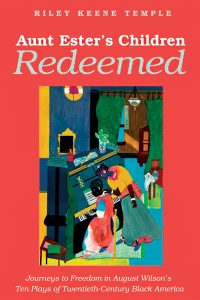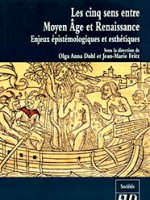Bookshelf
Aunt Ester’s Children Redeemed
By Riley Temple ’71
 While working toward a master’s degree at Virginia Theological Seminary in Alexandria, Va., Riley Temple ’71 became interested in the intersection among theology, theater, and visual arts. He decided to write his honors thesis on the plays of August Wilson (1945-2005), who wrote one play for every decade of the 20th century that explored black life in America for the descendants of slaves.
While working toward a master’s degree at Virginia Theological Seminary in Alexandria, Va., Riley Temple ’71 became interested in the intersection among theology, theater, and visual arts. He decided to write his honors thesis on the plays of August Wilson (1945-2005), who wrote one play for every decade of the 20th century that explored black life in America for the descendants of slaves.
“I looked at how Wilson’s 10 plays of black America could be considered and read through a theological prism,” says Temple, a telecommunications lawyer in Washington, D.C., whose board memberships include National Archives Foundation and National Trust for the Humanities. His thesis is the basis for Aunt Ester’s Children Redeemed, published in February and available on Amazon.com.
Throughout the book, Temple demonstrates how Wilson “uses language—poetry, the blues—to bring each play’s characters to a point of wholeness, redemption, and freedom, not from history, but ennobled and strengthened by it,” according to a synopsis on the back cover.
Documentary filmmaker Ken Burns says in a review, “Only an ostrich, head buried in the sand, does not know the breadth of August Wilson’s stunning body of work. But only Riley Temple could expose that work—and its unifying genius—with scholarship, emotion, and genuine Spirit!”
Temple doesn’t expect the book to be a major seller. It’s scholarly work, he says, but it has garnered opportunities to speak and new ways to consider how visual arts evoke theological reflection. To help further his research, he took a part-time job as a museum assistant at Phillips Collection in Washington, D.C., so he could develop a refined eye. “It was not a good fit,” he says. “I got too involved in the paintings and the clientele.”
He did, however, establish a relationship with Phillips and delivered a presentation with the chief curator about his ideas on theology and creative arts. He is scheduled to teach Theology and Modern Drama at Wesley Theological Seminary in Washington, D.C., this winter.
AUTHOR’S NOTE:
“One of the reasons why I like that you are covering my book is because it places me among very fine company at Lafayette who have contributed to the cultural landscape of America. I am enormously proud to be involved and included in that pantheon of people whom I respect greatly and who have been able to harness creative ability to mobilize the human spirit. There is tremendous creativity among our black alums.”

The Five Senses from the Middle Ages to the Renaissance
Co-written by Olga Anna Duhl

Courts in Federal Countries: Federalists or Unitarists?
Co-written by John Kincaid

Rebuilding Shattered Worlds: Creating Community by Voicing the Past
By Andrea L. Smith (with Anna Eisenstein)
